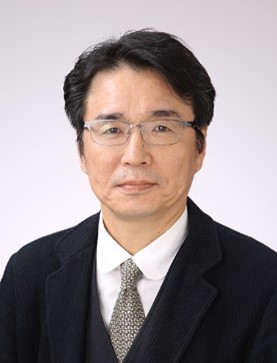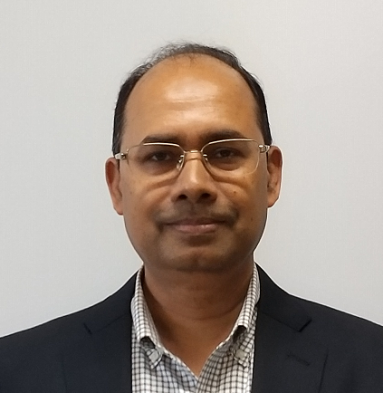Prof Naoki Nakashima and A/Prof Rafiqul Islam Maruf: Portable Health Clinic

Join our seminar online at our Zoom meeting.
About the Speakers
 Naoki Nakashima, MD, PhD, is the Director/Professor of the Medical Information Center of Kyushu University Hospital, and also Vice CIO of Kyushu University, Japan. He has been a specialist in diabetes mellitus for more than 30 years and simultaneously worked as a specialist in medical informatics for 18 years.
Naoki Nakashima, MD, PhD, is the Director/Professor of the Medical Information Center of Kyushu University Hospital, and also Vice CIO of Kyushu University, Japan. He has been a specialist in diabetes mellitus for more than 30 years and simultaneously worked as a specialist in medical informatics for 18 years.
Professor Nakashima is the Vice President of the International Medical Informatics Association (IMIA). Earlier he served as the President of the Japan Association for Medical Informatics (JAMI) and the Asia-Pacific Association for Medical Informatics (APAMI). Professor Nakashima focuses on the disease management methodology and patient-engagement promotion of chronic diseases from primary to tertiary prevention with IT networks including personal health record (PHR), telemedicine, IoT sensor network, data-driven medical study, learning health systems, cyber-physical systems, and artificial intelligence.
 A/Prof Rafiqul Islam Maruf is working as an Associate Professor at Medical Information Center of Kyushu University Hospital under Kyushu University, Japan. Besides, he has been working as a Director of Global Communication Center, the ICT based R&D wing of Grameen Communications, Bangladesh. Earlier he worked in Japanese IT industries for 12 years after completing his PhD in Information Engineering from Hokkaido University, Japan.
A/Prof Rafiqul Islam Maruf is working as an Associate Professor at Medical Information Center of Kyushu University Hospital under Kyushu University, Japan. Besides, he has been working as a Director of Global Communication Center, the ICT based R&D wing of Grameen Communications, Bangladesh. Earlier he worked in Japanese IT industries for 12 years after completing his PhD in Information Engineering from Hokkaido University, Japan.
Dr Maruf has been associated with various Internet standardisation organisations, government bodies and business communities. He has attended many international conferences, seminars and events of ICT around the world and spoken on ICT for development. His area of interest include ICT for agriculture, education, environment, information and healthcare. Currently, he is focusing on healthcare, mainly in the areas of Telemedicine, Portable Healthcare System and Medical Informatics. His vision is to see the world of “ICT for Humanity”.
Abstract
The Portable Health Clinic (PHC) system endeavours to take healthcare facilities, along with remote doctors’ consultancy, to the doorsteps of unreached communities using an advanced telemedicine system. Thus, the necessity of having physical healthcare peripheries, especially in developing countries, can be mitigated. The PHC system promotes preventive healthcare by encouraging regular health check-ups to prevent diseases, as well as minimising their severity, leading to a reduction in healthcare expenses.
The ongoing project in rural Bangladesh has already provided healthcare services to over 50,000 individuals through the PHC system, and a simple analysis of the data reveals significant improvements in the region's overall health status. Initially designed with a focus on non-communicable diseases, the PHC system has gradually incorporated additional modules such as tele-Pathology, tele-EyeCare, tele-MCH care, and tele-COVID care to cater to local needs. Furthermore, the PHC service has expanded geographically to other developing countries, thanks to collaborations with local partners in Cambodia, India, Indonesia, Malaysia, Pakistan, and Thailand. While the PHC system's initial target was developing countries, it has now emerged as a promising solution for providing home delivery services to the expanding aging communities in developed countries as well.
About UQ Poche Seminar Series on Indigenous Health
Our Seminar Series brings together the Indigenous health research community. This series showcases high-quality presentations from researchers, academics, HDR students, health professionals and community leaders.
Join our seminar series mailing list
The UQ Poche Centre Seminar Series is a dynamic platform for sharing knowledge and fostering collaborative research in Indigenous health. Join our mailing list to stay informed about our seminars and diverse roster of speakers. Subscribe now to receive information about the latest events and presentations.
Venue
https://uqz.zoom.us/j/84058786811
